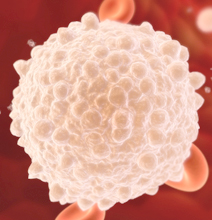How is chemotherapy given?

Chemotherapy is given in cycles of treatment, with resting periods between them. A cycle can last 3 or 6 months - depending on the type of formulation and the cancer progression - with medication being given every 2 to 3 weeks.
The resting period between each treatment cycle allows the body healthy tissues to recover from the chemotherapy toxicity (tumor cells, less able to recuperate than healthy ones, will die).
Despite no treatment, the disease should not evolve during this time because:
• The chemical substances given remain in the body for a while (that is also why some side effects only disappear months after the end of the treatments);
• Malignant cells usually do not recover as quickly as normal cells.
Nevertheless, your disease is continuously monitored, and if there is an evolution, your oncologist could re-evaluate the treatment program.
Monitoring the disease
The treatment efficacy is monitored by regular examinations that can include clinical analyses and imaging tests, such as computed axial tomography (CAT) scan, positron emission tomography (PET), magnetic resonance imaging (MRI), echography or scintigraphy
Depending on the tumor response, and the toxicity of the drugs felt by the patient, the formulation could be adjusted, changed, or alternated with other formulations.




